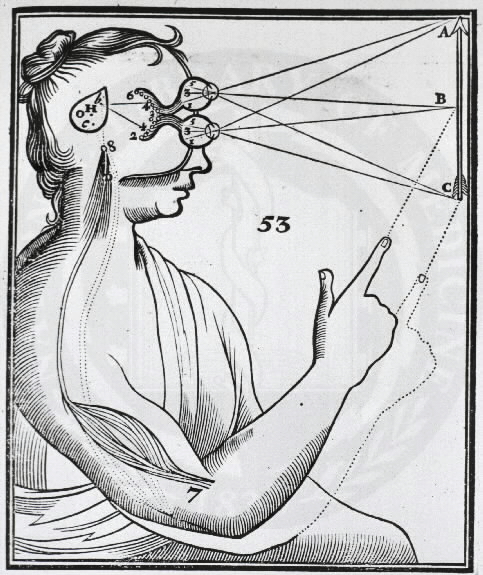As we have seen in the previous post, we can make sense of the division between subjective and objective modalities in terms of whether they concern worldly objects, or rather our attitudes towards them. The target of necessary constraints (whether they are worldly or representational) matters, not the source of necessity. But what about the finer distinctions: what distinguishes between epistemic and conceptual possibility? And what distinguishes metaphysical and natural necessity?
Consider epistemic and conceptual possibilities first. An hypothesis that flows naturally from our previous remarks is that the target of necessity is representational in both cases, but the source of necessity is markedly different in each case. With conceptual and logical necessity, the source of necessity, the origin of the constraint, lies in our representational capacities, in us, while with epistemic necessity, it lies in the external world. This means reintroducing an analytic/synthetic distinction, but I don't think it is a problem.
It is often thought that the set of what is conceivable is strictly larger than the set of epistemic possibilities. This makes sense, assuming that what first defines a possibility space for thought contents is the nature of our cognitive system, and then, the external world adds further constraints (our conceptual scheme shapes the form that our evidence can take). But one could wonder if this is really the case given our remark, made in passing in the previous post, that conceptual progress often enlarges the space of conceivable possibilities.
Take the possibility that there is a maximum speed in the universe: it was deemed conceptually incoherent by Leibniz, and arguably, it is if one thinks classically, but the theory of relativity opened our options in this respect. Or take the possibility for a physical triangle to have a sum of angles higher than 180. It apparently "became" possible with non-euclidean geometry potentially being the accurate geometry for our universe. So, was it epistemically impossible before we knew that non-euclidean geometries constitute a consistent alternative to euclidean ones, and it somehow became epistemically possible? Can it be epistemically impossible, but true? Or was it an epistemic possibility that was unconceivable before we knew about non-euclidean geometries, implying that epistemic possibilities are not actually a subset of conceptual ones? Or (probably the standard view) was it already conceivable, only unconceived of?
All options have their problems, so I will leave this interesting question aside (I will address it in a future article). But we can retain the idea that the distinction between epistemic and conceptual has to do with the source of necessity.
Let us turn to the mind-independent side of the issue. How to differentiate natural and metaphysical possibilites? We have said that their targets are worldly, but the source of constraints seems wordly as well in both cases: laws of nature, or the nature of things. Metaphysical necessity is sometimes defined as the most unrestricted form of mind-independent necessity, implying that there are levels of necessity, nested sources of constraints maybe, but it's not very clear how we shall understand this.
It is interesting to entertain the idea that the difference between the metaphysical and natural follows that between the conceptual and the epistemic: intuitively, one is more situated, local, affected by contingencies than the other. Perhaps our conceptual schemes aim at matching the metaphysical fabric of reality, and our epistemic evidence only concerns its local configuration? But this idea does not fit well with the idea that the source of conceptual necessity is representational, because the source of metaphysical necessity does not apparently lie inside of us. Unless we go Kantian, or neo-Kantian.
The idea could be the following: Metaphysical and conceptual necessity are internal, in the sense that they are constraints on something that are imposed by this thing's very nature, our nature as cognitive agents for conceptual necessity and the nature of external stuff for metaphysical necessity. This could explain why one typically reflects the other (but is it really the case?). Natural and epistemic necessities, on the other hand, would be heteronomic, imposed by something external: the external world that affects our experiences in the case of epistemic necessity, and other objects or a natural context in the case of natural necessity. There are other options as well, such as being sceptical about the distinction between natural and metaphysical necessity (as are some dispositional essentialists) or reducing metaphysical necessity to conceptual necessity in a conventionalist spirit. This latter option could imply that natural possibilities, a subet of metaphysical ones, are also relative to a conceptual scheme!
I am personnally sceptical about there being metaphysical necessities that are distinct from natural and conceptual ones (and it is hard to find illustrations of metaphysical necessity claims that sound natural, as if it were a purely philosophical construct!). But all this would deserve much more development than I can provide here. What I will retain here is only the idea that the source of conceptual necessity (our nature as conceptual agents) is mind-dependent, the source of epistemic necessity (our evidence) is mind-independent, but the target is representational in both cases, while the target and source of objective possibilities (metaphysical or natural) are both mind-independent. I will not attempt to distinguish between natural and metaphysical necessity.

Commentaires
Enregistrer un commentaire